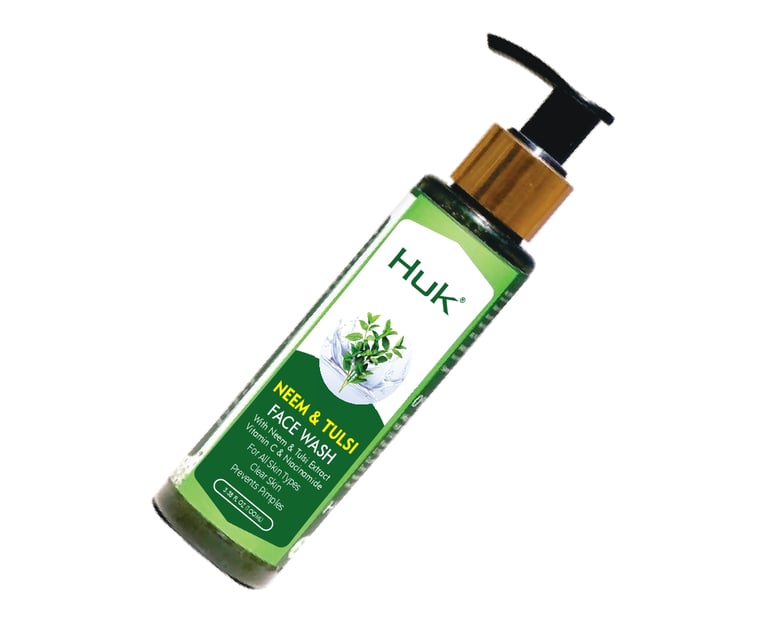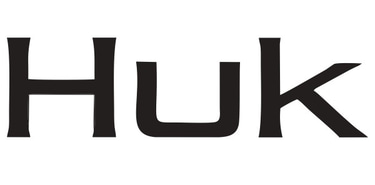Herbal Face Wash Manufacturer | Neem, Aloe Vera, Coffee and Saffron
Leading herbal face wash manufacturer with custom blends of Neem, Tulsi, Saffron, Coffee & Aloe Vera. Private label & third-party best manufacturing available.
NEWS
Huk
9/27/20255 min read


Introduction to Herbal Face Wash
The skincare industry has witnessed a significant shift towards natural and organic products, particularly in the realm of facial cleansing. Herbal face washes are gaining notoriety for their holistic benefits, as they are formulated with natural ingredients like neem, tulsi, saffron, and aloe vera. These ingredients are heralded for their therapeutic properties and are becoming increasingly preferred choices among consumers in search of effective yet gentle skincare solutions.
Herbal face washes leverage the unique qualities of their botanical components to cleanse the skin without harsh chemicals. Neem, for instance, is renowned for its antibacterial and anti-inflammatory properties, making it an ideal ingredient for controlling acne and promoting clearer skin. Tulsi, often referred to as holy basil, acts as a natural detoxifier, helping to purify the skin and ward off environmental pollutants.
Saffron, lauded for its skin-lightening and revitalizing features, brings luminance and a youthful glow to the complexion, while aloe vera provides soothing hydration and aids in healing. The synergy of these herbal ingredients not only cleanses but also nourishes and protects the skin, positioning herbal face washes as a robust alternative to conventional products laden with synthetic additives.
The growing consumer awareness regarding harmful chemical components in traditional skincare products has propelled the demand for herbal options. This conscious shift towards sustainable and organic choices is indicative of a broader trend focused on wellness and natural beauty. As users prioritize ingredients that are not only effective but also ethically sourced and environmentally friendly, the market for herbal face washes continues to expand, reflecting a transformation in consumer preferences and an increased recognition of the efficacy of nature in skincare.
Key Ingredients: Benefits of Neem, Tulsi, Saffron & Aloe Vera
Herbal face washes have gained popularity owing to their natural ingredients and myriad benefits for skin health. Four prominent ingredients often highlighted in these products are neem, tulsi, saffron, and aloe vera, each contributing unique properties to enhance skin vitality.
Neem, known for its antibacterial properties, is a common component in many herbal face washes. It effectively combats acne-causing bacteria, making it suitable for oily and acne-prone skin. Additionally, neem possesses anti-inflammatory characteristics, which can help reduce redness and irritation. Its ability to balance oil production renders it beneficial for various skin types, especially those prone to breakouts.
Tulsi, or holy basil, is another remarkable ingredient in herbal face washes. Renowned for its antioxidant properties, tulsi helps to detoxify the skin by removing impurities and pollutants. It also boasts antibacterial qualities, which contribute to preventing skin infections. Moreover, tulsi aids in maintaining skin moisture levels, thus preventing dryness while promoting a healthy complexion.
Saffron, an exotic spice, is celebrated for its skin-brightening effects. It contains antioxidants that fend off free radicals, which are responsible for skin aging. Saffron can also diminish pigmentation and add a natural glow to the skin, making it ideal for those seeking to improve skin tone and texture. Its soothing properties may provide relief to inflamed skin and reduce the appearance of blemishes.
Aloe vera stands out as a versatile ingredient, valued for its hydrating and soothing properties. This succulent plant is rich in vitamins and minerals, contributing to skin nourishment and repair. Aloe vera's anti-inflammatory benefits help alleviate sunburn and irritation, while its high water content ensures skin stays moisturized without feeling greasy. Its light texture makes it suitable for all skin types, promoting a healthy, radiant appearance.
As skincare manufacturers increasingly incorporate these natural ingredients into their products, understanding their individual benefits is essential for consumers. Through the use of neem, tulsi, saffron, and aloe vera, herbal face washes offer a holistic approach to skin care, addressing a multitude of concerns while promoting overall skin health.
Choosing a Reliable Herbal Face Wash Manufacturer
When selecting a manufacturer for herbal face wash products, several critical factors should be taken into account to ensure quality and safety. The primary consideration is sourcing quality ingredients. Manufacturers that utilize high-grade organic herbs, such as neem, tulsi, saffron, and aloe vera in their formulations are more likely to offer effective products. It is advisable to examine the ingredient sourcing process, ensuring that the herbs are sustainably harvested and free from harmful pesticides.
Another essential aspect is the manufacturer’s adherence to ethical manufacturing practices. This encompasses their production methods, labor practices, and environmental responsibility. A reputable herbal face wash manufacturer should be transparent about their sourcing and production processes, allowing consumers to make informed choices regarding the products they use on their skin. Look for manufacturers who openly communicate their commitment to ethical practices, as this reflects on their overall brand integrity.
Transparency in labeling is equally important. Consumers should be able to easily access complete ingredient lists and understand the purpose of each component within the formulation. Manufacturers who prioritize clarity and honesty in their product descriptions tend to offer more reliable products. Additionally, certifications can serve as a significant indicator of product safety and efficacy. Look for certifications from recognized organizations that validate the quality and effectiveness of the herbal face wash. These certifications often indicate adherence to industry standards and can provide reassurance regarding the product's health benefits.
To identify reputable brands, consider customer reviews and feedback to gauge satisfaction and effectiveness. Engaging with a community of users can provide further insights into trusted manufacturers. Overall, choosing a reliable herbal face wash manufacturer requires attention to ingredient quality, ethical manufacturing, transparent labeling, and industry certifications.
Consumer Perspective: The Future of Herbal Face Wash Products
The herbal face wash market has been experiencing significant growth, propelled primarily by changing consumer preferences towards organic and natural skincare solutions. As consumers become increasingly aware of the ingredients in their skincare products, there is a notable shift towards herbal formulations that incorporate neem, tulsi, saffron, and aloe vera. Feedback from consumers suggests a strong preference for these key ingredients due to their therapeutic properties and perceived health benefits. Neem, for instance, is celebrated for its antibacterial properties, while tulsi is known for its ability to soothe the skin and combat environmental stressors.
Moreover, saffron's luxurious reputation and skin-brightening benefits attract those looking for premium skincare options, whereas aloe vera's hydrating qualities resonate with many seeking gentle, soothing formulations. As a result, manufacturers are increasingly focusing on these natural ingredients, recognizing the evolving expectations of consumers who prioritize efficacy and safety in their skincare regimens.
Looking ahead, the future of the herbal face wash industry appears promising, with potential innovations on the horizon. Customers are not only advocating for effectiveness but are also expressing a keen interest in sustainability. This has motivated brands to adopt eco-friendly practices in their manufacturing processes, including biodegradable packaging and ethical sourcing of raw materials. Manufacturers are responding to this demand for environmental responsibility by ensuring that their products are produced with minimal impact on the planet.
In conclusion, the consumer landscape for herbal face wash products is evolving with an increasing focus on natural ingredients and sustainable practices. As feedback reveals, the preference for neem, tulsi, saffron, and aloe vera is shaping the future of the industry, leading to innovations that prioritize both efficacy and environmental considerations. The collaboration between consumers and manufacturers will undoubtedly continue to drive progress in this burgeoning market.
Huk Natural
Enhancing beauty with natural, high-quality products.
Tradition
info@huknatural.com
+91-9599-172879
© 2025. All rights reserved.
Category


